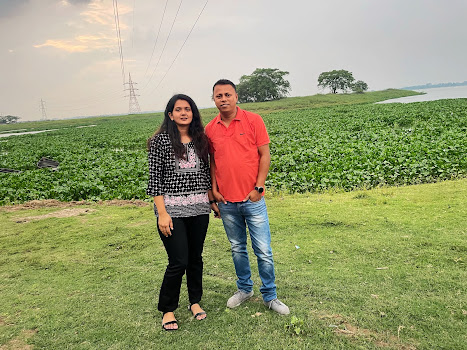All About Deepor Beel, Assam's Only Ramsar Site
All About Deepor Beel, Assam's Only Ramsar Site
The 4.1-square kilometre wetlands of Deepor Beel, the state's only Ramsar site, has around 200 species of birds and 70 species of migratory birds
The Deepor Beel Wildlife Sanctuary, in the Kamrup district of the lower Brahmaputra valley, is a perennial freshwater lake on the outskirts of Guwahati, Assam. The state's only Ramsar site (declared in 2002) and a well-known tourist spot, the Deepor Beel is also the only central storm-water storage basin for Guwahati. A Ramsar site is a wetland of international importance under the Ramsar Convention, an international treaty signed in 1971 in Ramsar in Iran.
For One And All
Covering 4.1 square kilometres, the Beel, which means "lake" in Assamese, is home to residents and migratory birds and a site to spot herds of Asiatic wild elephants, that are attracted to the lake's aquatic vegetation. They come to the beel from the four elephant corridors of the region, in the Rani-Garbhanga Reserve Forests in Kamrup east, to reach the lake for their favourite food.
A vital staging site on migratory routes, winter is when Deepor Beel sees the maximum number of birds. There are around 200 species of birds in the Deepor wetlands, including 70 species of migratory birds. Some of the species you can see are the lesser and greater adjutant stork (Leptoptilos javanicus and dubius), spot-billed pelican (Pelicanus philippensis), and Baer's pochard (Aythya baeri). The lake has 38 species of reptiles and amphibians, around 50 species of fish, some of which the locals harvest, nymphaea nuts and flowers, some ornamental fish, medicinal plants, and seeds of the giant water lily Euryale Ferox, or makhana, which have a good resale value.
Neck-deep In Woes
The lake, a Ramsar site, is on various protected lists. Birdlife international has declared Deepor Beel as an Important Bird Area (IBA) site. Deepor Beel was notified under the Guwahati Water Bodies (Preservation and Conservation) Act, 2008, and yet, it has untreated sewage flowing from Guwahati city into it via the Bharalu, and the Basistha-Bahini rivers. The lake's outflow is the Khandajan rivulet, which joins the Brahmaputra. As the lake has encroachments from the industrial development around it, it suffers from heavy siltation from the deforested hills around the lake, accumulation of waste from the city, unregulated fishing, invasion of aquatic weeds such as water hyacinth, or Eichhornia crassipes.
The construction of railway lines near the lake has already disturbed the movement of the elephants in their dedicated corridors as the rail tracks cut through them. Many elephants have died after being hit by trains. The Guwahati Smart City has scrapped its project to redevelop the beel.
Hope Floats
The Northeast Frontier Railway plans to construct an elevated rail corridor in Deepor Beel to reduce elephant deaths. Also, quite a few pro-conservation organisations are working to keep Deepor Beel from deteriorating further, as it is not only an important biodiversity area but also supports the livelihoods of the locals.
The Information
Best time to visit: October to March
Getting to Deepor Beel: It is about 12 kilometres from Guwahati railway station, and taxis and buses are easily available to reach the sanctuary.
Reaching Guwahati:
By air: The Lokapriya Gopinath Bordoloi International Airport is at Borjar, 20 kilometres from Guwahati. Helicopter services are operational from Guwahati to Shillong, Tura, Naharlagun, and Tawang. There are regular flights to other cities in Assam, such as Jorhat, Lakhimpur, Tezpur, and Dibrugarh. Guwahati has air connectivity to major cities of India.
By train: North Eastern Railway zone of the Indian Railways connects Guwahati with the rest of the country. The Guwahati Junction is the headquarter of the zone.
By road: The Inter State Bus Terminus (ISBT), located on the outskirts of Guwahati, provides connectivity with other regions of the northeast and the country. National Highway 31 and 37 are the two primary road connections to Guwahati. You can also avail of private transport systems.




Comments
Post a Comment